Welcome to the ultimate showdown in the web development arena! Today, we're diving deep into the world of frontend framework, where React and Vue emerge as the champions battling for supremacy.
Whether you're a seasoned developer or just starting, choosing between these two can feel like picking your favorite superhero. Fear not! We're here to guide you through the ins and outs, strengths, and quirks of React and Vue, ensuring you're armed with the knowledge to make the best choice for your project. Let the React vs Vue battle commence!
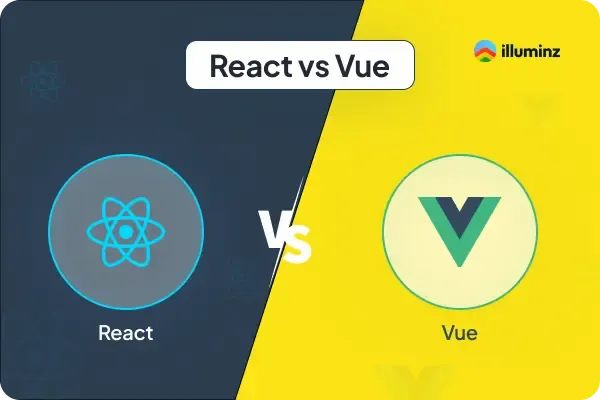
What is React?
React, developed by the tech giant Facebook, has gained widespread adoption since its release in 2013. It was created by Jordan Walke, a software engineer at Meta (formerly known as Facebook). The framework revolves around the concept of building user interfaces (UIs) with reusable components. Its JSX syntax and one-way data binding have become defining features, offering a robust solution for building dynamic and scalable user interfaces.
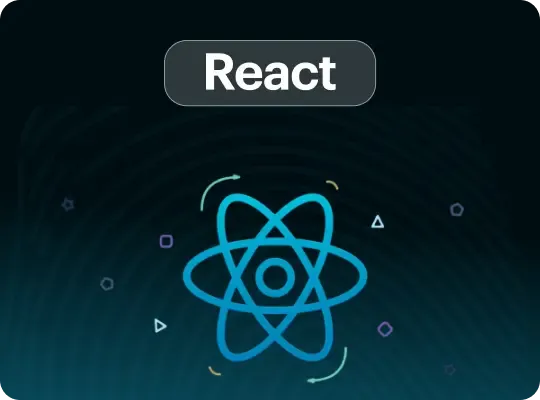
- Popularity: React isn't just a framework; it's a phenomenon. With a fanbase spreading far and wide, React is the go-to for leading companies, making it the rockstar of the front-end world.
- Ecosystem: React's got this huge toolkit with loads of cool stuff. You can build almost anything with it.
- Usage: If you're into making fast and slick single-page apps or diving into mobile development, React is your go-to.
What is Vue?
Vue, created by Evan You, emerged in 2014 as a progressive JavaScript framework. Known for its simplicity and flexibility, Vue employs a template syntax and provides two-way data binding. Vue's gradual adoption approach makes it an excellent choice for projects of varying sizes and complexities. Vue is like the underdog that steadily rises through the ranks, proving that great things come in accessible packages.
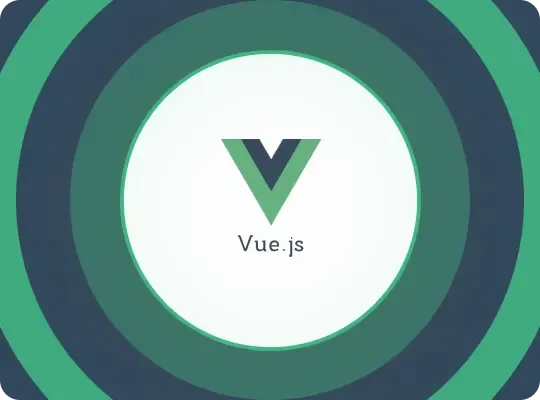
- Popularity: Vue's the friendly neighborhood superhero. It's gaining popularity because it's easy to pick up and play with.
- Ecosystem: Not as massive as React's, but growing steadily. Vue's like that reliable friend who always has your back.
- Usage: Vue's perfect for quick projects or if you're new to the game. It's got that simplicity vibe that many devs love.
Real-World Examples: React vs Vue
React Showcase:
- Facebook: The social media giant itself utilizes React for its dynamic and data-intensive components. React's ability to manage complex UIs efficiently aligns with Facebook's diverse features.
- Netflix: React's component-based architecture shines in streaming services like Netflix. The ease of building interactive UI elements contributes to a seamless user experience.
Vue in Action:
- Alibaba: Vue's simplicity and gradual learning curve make it appealing for large-scale e-commerce platforms like Alibaba. Vue's reactivity system enhances the responsiveness of Alibaba's product pages.
- Behance: The design-focused platform Behance leverages Vue for its clean and intuitive UI. Vue's straightforward syntax aligns well with Behance's emphasis on visual aesthetics.
Feature Comparison: React vs Vue
| Feature | React | Vue | |||||||||
|---|---|---|---|---|---|---|---|---|---|---|---|
| Framework Origin | Developed and maintained by Facebook | Developed by Evan You and maintained by the community | |||||||||
| Learning Curve | Steeper learning curve, especially for beginners | Easier learning curve, more approachable for beginners | |||||||||
| Data Binding | One-way data binding by default, but supports two-way binding with additional libraries | Two-way data binding by default using v-model | |||||||||
| Component Architecture | Uses a more explicit approach with the separation of components and containers | Uses a more flexible and simple single-file component system | |||||||||
| State Management | Requires additional libraries for state management (e.g., Redux) | Has a built-in state management system, but can also use external libraries if needed | |||||||||
| Community Support | Large and active community with extensive resources and third-party libraries | Growing community with good support and an increasing number of libraries | |||||||||
| Virtual DOM | Utilizes a virtual DOM for efficient updates to the actual DOM | Also uses a virtual DOM for efficient rendering and updates to the actual DOM | |||||||||
| Flexibility and Opinionated | More flexibility and fewer opinions on how things should be done | More opinionated, providing a set of conventions to follow for consistency | |||||||||
| Size of Library | Smaller core library, additional features are available through separate libraries | Slightly larger core library with more built-in features | |||||||||
| Integration with Other Libraries | Works well with other libraries and frameworks | Can be easily integrated with other libraries, but may require additional configuration | |||||||||
| Server-Side Rendering (SSR) | Supports server-side rendering (SSR) through third-party libraries like Next.js | Has built-in support for server-side rendering (SSR) | |||||||||
| Ecosystem | A vast ecosystem with many third-party libraries and tools | A growing ecosystem with a focus on simplicity and ease of use |
It's important to note that the choice between React and Vue often depends on the specific needs and preferences of the project and development team. Both frameworks have their strengths and weaknesses, and the right choice may vary based on factors such as project requirements, team expertise, and personal preferences.
React Pros
- Large and Active Community: React has a vast and active community, which means extensive resources, tutorials, and third-party libraries are available.
- Flexibility: React is more flexible and allows developers to make decisions about tools and libraries to use in their projects.
- Virtual DOM: The use of a virtual DOM enables efficient updates to the actual DOM, leading to better performance.
- React Native: React's component-based architecture is also used in React Native, allowing developers to build mobile applications with a familiar syntax.
- One-way Data Binding: One-way data binding by default simplifies the understanding of how data flows in the application.
React Cons
- Learning Curve: The learning curve can be steep, especially for beginners, due to concepts like JSX, virtual DOM, and a more complex setup.
- Boilerplate Code: React may require more boilerplate code, especially for state management, which can increase the overall codebase size.
- State Management: While React has some state management capabilities, complex applications may require additional libraries like Redux.
Vue Pros
- Easy Learning Curve: Vue is known for its straightforward and easy-to-understand syntax, making it more approachable for beginners.
- Two-way Data Binding: Vue provides two-way data binding by default using v-model, simplifying the process of handling user inputs.
- Component-Based: Vue follows a component-based architecture, making it modular and easy to manage, similar to React.
- Built-in State Management: Vue has a built-in state management system that simplifies handling and managing the state of the application.
- Integration: Vue can be gradually adopted into existing projects, making it easy to integrate with other libraries and frameworks.
- Smaller Ecosystem: While growing, Vue's ecosystem is not as extensive as React's, which may result in fewer third-party libraries and tools.
- Community Size: The community(https://vue-community.org/guide/), while active and growing, is not as large as React's, which might mean slightly fewer resources and community-driven support.
- Opinionated: Vue is more opinionated compared to React, which might limit flexibility in certain scenarios where developers prefer more control over decisions.
Vue Cons
Both React and Vue are excellent choices, and the decision between them often comes down to the specific requirements and preferences of the project and development team.
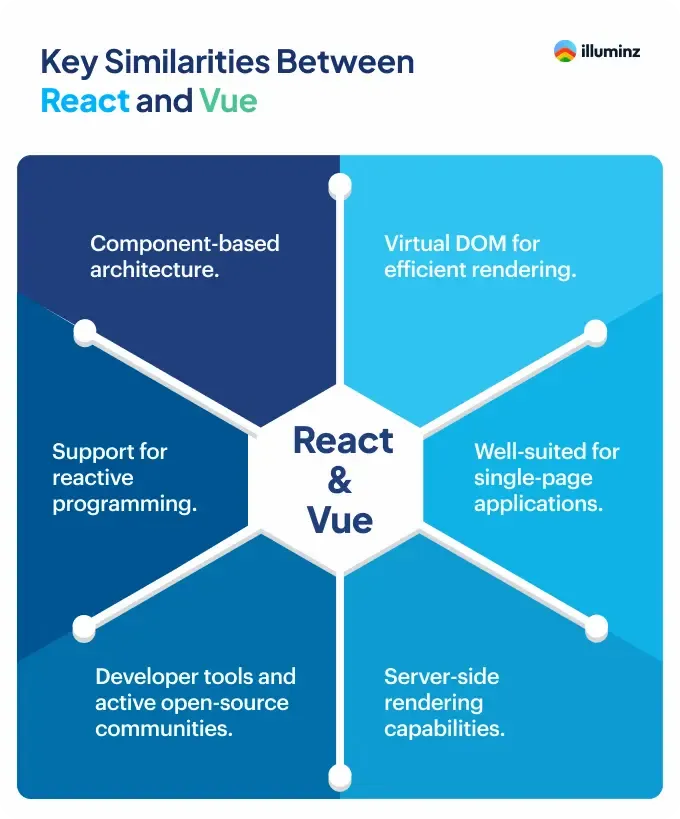
Picking between React or Vue is a big choice in front-end development. React works well for big projects, it's powerful, and a lot of people use and support it. This means you can find lots of help. On the other hand, Vue is easy to learn and great for smaller projects or if you're just getting started. It might not have as many features as React, but it's still popular and has a helpful community.
Our Work:
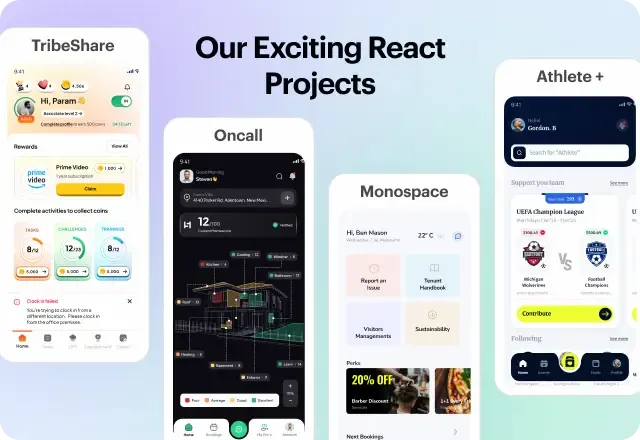
Both React and Vue use modern tech to make web pages work smoothly and look good. Your choice should depend on what your project needs and what you or your team are good at. In short, React and Vue are both excellent, but they suit different kinds of projects.
Think about what you're trying to build and choose the one that fits best. Remember to check the latest updates for both to make sure you're using their newest features. Happy coding!
Frequently Asked Questions on React Vs. Vue
Question 1: React vs Vue - Which is better for large-scale applications?
Answer 1: React is widely used in large-scale applications, particularly because of its flexibility, scalability, and the strength of its ecosystem. Companies like Facebook, Instagram, and Airbnb use React.
Vue can also be used for large-scale applications, with its modular architecture making it highly scalable. Alibaba and Xiaomi are examples of large companies using Vue.
Question 2: What is the availability and cost of hiring developers skilled in React vs. Vue?
Answer 2: The larger pool of React developers might make it easier to find and hire talent, potentially affecting wage demands. Vue's growing popularity has also increased the availability of skilled developers, but the demand can vary by region.

